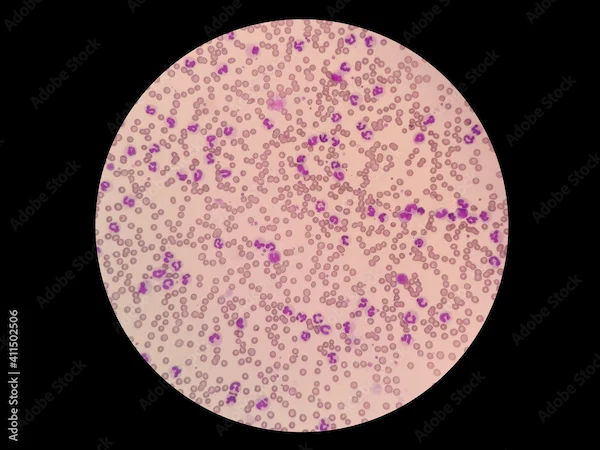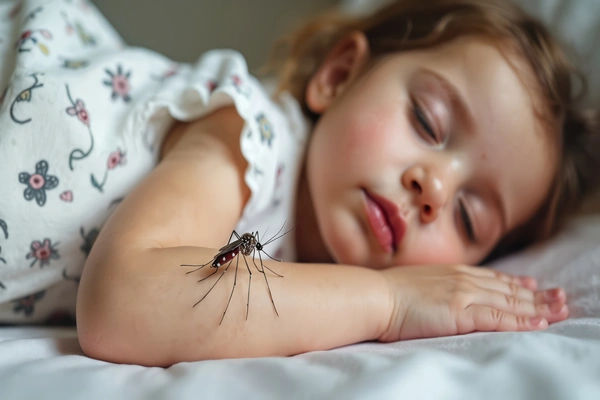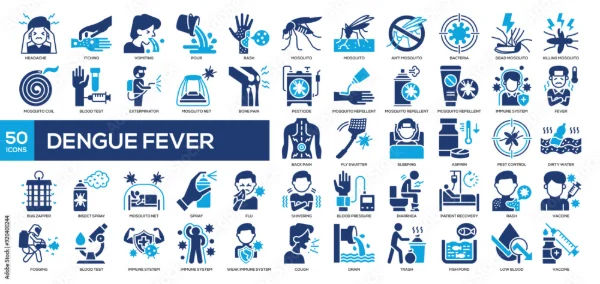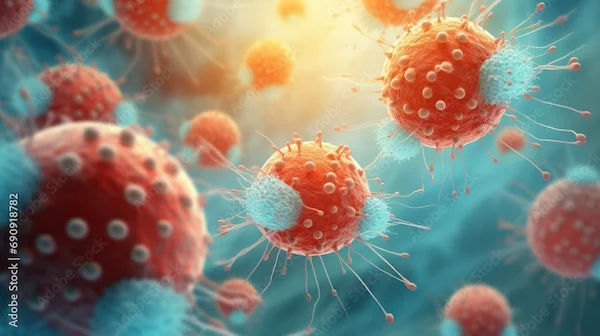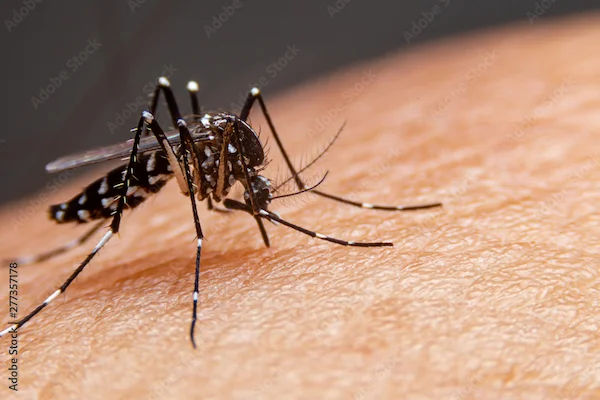Dengue Fever: Signs, Diagnosis, and Treatment
Learn about dengue fever, including its signs, diagnosis methods, and treatment options, to recognise and manage this mosquito-borne illness effectively.

Written by Dr. Md Yusuf Shareef
Reviewed by Dr. Shaik Abdul Kalam MD (Physician)
Last updated on 13th Jan, 2026

Introduction
Dengue fever is a mosquito-borne viral infection that poses a significant health threat in tropical and subtropical regions around the world, including many parts of India. Characterised by a sudden high fever and severe body aches, it's often called "breakbone fever." While many cases are mild and manageable at home, some can develop into severe, life-threatening complications. Understanding the signs of dengue fever, its progression, and the available treatment options is crucial for effective management and recovery. This comprehensive guide will walk you through everything you need to know, from identifying the initial dengue symptoms and getting a proper diagnosis to proven treatment methods and essential prevention strategies to keep you and your family safe.
What is Dengue Fever?
Dengue fever is an illness caused by one of four closely related dengue viruses (DENV-1, DENV-2, DENV-3, and DENV-4). The infection is transmitted to humans through the bite of an infected female mosquito, primarily the Aedes aegypti species. This makes it a vector-borne disease. One unique and challenging aspect of dengue is that recovery from one serotype provides lifelong immunity only to that specific virus, meaning you can be infected again by a different serotype. Subsequent infections often carry a higher risk of developing into severe dengue.
How Dengue Spreads: The Aedes Mosquito
The primary culprit behind the spread of dengue is the Aedes aegypti mosquito. This mosquito is easily identifiable by the distinctive white bands or scales on its legs and a lyre-shaped pattern on its thorax. Unlike other mosquitoes that breed in large water bodies, the Aedes mosquito is an urban dweller that prefers to breed in clean, stagnant water found in man-made containers right in our homes, like flower vases, water storage tanks, discarded tires, and coolers. It is a daytime biter, with its peak activity periods in the early morning and just before dusk.
Consult a General Physician for the best advice
Recognising the Signs and Symptoms of Dengue
Dengue symptoms typically appear 4-10 days after being bitten by an infected mosquito and can range from mild to severe. The illness often progresses through three phases: febrile, critical, and recovery.
Mild Dengue Fever Symptoms
Many people, especially children and those experiencing their first infection, may have no symptoms at all. When present, mild dengue symptoms often mimic a severe flu and include:
- A sudden, high fever (104°F or 40°C)
- Severe headache, particularly behind the eyes
- Intense muscle, bone, and joint pain
- Nausea and vomiting
- Pain behind the eyes (retro-orbital pain)
- Swollen glands
- A characteristic skin dengue fever rash that may appear a few days after the fever starts.
Warning Signs of Severe Dengue (Dengue Haemorrhagic Fever)
In some cases, typically around the time the fever begins to subside (day 3-7 of illness), the disease can evolve into severe dengue, also known as dengue haemorrhagic fever or dengue shock syndrome. This is a medical emergency. Warning signs of severe dengue to watch for include:
- Severe abdominal pain and tenderness
- Persistent vomiting (often with blood)
- Bleeding from the gums or nose
- Blood in urine, stools, or vomit
- Rapid breathing
- Fatigue, restlessness, or irritability
- A sudden drop in platelet count
If you or a family member show any of these severe symptoms, seek immediate medical attention.
How is Dengue Fever Diagnosed?
Diagnosing dengue based on symptoms alone can be difficult because it resembles other illnesses like chikungunya, malaria, and typhoid. A proper medical diagnosis is essential.
When to See a Doctor
You should consult a doctor if you develop a high fever and have recently visited or live in an area known for dengue. Early diagnosis can help manage the disease effectively. If your condition worsens rapidly or you show any warning signs, do not wait; seek emergency care immediately.
Common Diagnostic Tests for Dengue
A doctor will confirm dengue through specific blood tests that detect the virus or antibodies your body produces to fight it. Key tests include:
- NS1 Antigen Test: This test detects the presence of the dengue virus itself (the NS1 protein) and is most effective within the first 5-7 days of illness.
- Dengue IgM/IgG Antibody Tests (Serology): These tests look for antibodies produced by your immune system. IgM antibodies appear first, indicating a recent infection, while IgG antibodies appear later and can indicate a past infection.
- Complete Blood Count (CBC): This is a critical test to monitor platelet count and hematocrit levels. A rapidly dropping platelet count in dengue and a rising hematocrit (indicating blood concentration) are red flags for severe dengue.
For convenience, services like Apollo24|7 offer home collection for these crucial tests, allowing you to monitor your health without traveling to a lab.
Get Your Health Assessed
Dengue Fever Treatment: Managing the Symptoms
Proper symptom management is key to recovery.
There is No Specific Cure for Dengue
There is no specific antiviral medication to cure dengue. The cornerstone of dengue fever treatment is supportive care, focusing on relieving symptoms and preventing complications.
Home Care and Recovery Tips
For mild cases, doctors recommend:
- Rest: Allow your body to fight the virus.
- Hydration: Drink plenty of fluids like water, oral rehydration solutions (ORS), and coconut water to prevent dehydration from fever and vomiting.
- Pain and Fever Relief: Use acetaminophen (paracetamol). It is crucial to avoid NSAIDs like ibuprofen, aspirin, or naproxen, as they can increase the risk of bleeding by further reducing platelet count.
Hospital Treatment for Severe Dengue
Severe dengue requires hospitalisation. Treatment involves:
- Intravenous (IV) Fluid Therapy: The primary treatment to prevent shock and maintain electrolyte balance.
- Blood Transfusion: In cases of severe bleeding or critically low platelet counts, platelet transfusion may be necessary.
- Continuous Monitoring: Vital signs, fluid output, and blood parameters are closely watched.
How to Prevent Dengue Fever
Since there is no specific cure, prevention is the best strategy against dengue.
- Prevent Mosquito Bites: Personal Protection
- Use EPA-registered mosquito repellents containing DEET, Picaridin, or Oil of Lemon Eucalyptus.
- Wear long-sleeved shirts and long pants, especially during daytime hours.
- Use mosquito nets while sleeping, preferably insecticide-treated ones.
- Ensure windows and doors have screens to keep mosquitoes out.
Control Mosquito Breeding: Environmental Measures
- Remove Stagnant Water: The single most effective step. Regularly empty, cover, or turn over any container that can hold water, such as pots, tires, buckets, or bird baths.
- Change Water Regularly: Change water in flower vases and plant pots at least once a week.
- Clean Water Containers: Scrub indoor water storage containers weekly to remove mosquito eggs.
- Proper Waste Disposal: Dispose of solid waste properly and remove artificial containers that can collect rainwater.
Understanding the Dengue Recovery Process
Recovery from dengue can be slow, often taking 1-2 weeks for energy levels to return to normal. It's common to experience fatigue and weakness for several weeks after the acute illness has passed. During this time, continue to get plenty of rest, maintain a nutritious diet, and stay well-hydrated.
Conclusion: Vigilance is Key
Dengue fever is a serious public health concern, but it is manageable and, most importantly, preventable. By understanding the signs and symptoms, you can seek timely medical help, which is critical for a positive outcome, especially in cases of severe dengue. Remember, the foundation of dengue fever treatment is supportive care, not specific drugs. The most powerful tool at your disposal is prevention. By taking proactive steps to protect yourself from mosquito bites and diligently eliminating breeding grounds in and around your home, you can significantly reduce your risk. Stay informed, stay vigilant, and prioritise your health. If you suspect you have dengue, always seek professional medical advice for proper diagnosis and management.
Consult a General Physician for the best advice
Consult a General Physician for the best advice

Dr. Chethan T L
General Physician/ Internal Medicine Specialist
5 Years • MBBS, MD, DNB (General Medicine)
Bengaluru
Apollo Medical Center, Marathahalli, Bengaluru

Dr. Dhankecha Mayank
General Practitioner
6 Years • MBBS
Hyderabad
Apollo 24|7 Clinic - Telangana, Hyderabad

Dr. Rajib Ghose
General Physician/ Internal Medicine Specialist
25 Years • MBBS
East Midnapore
VIVEKANANDA SEBA SADAN, East Midnapore
Dr Prachi Sankhe
General Physician/ Internal Medicine Specialist
8 Years • MBBS, MD (Internal Medicine)
Mumbai
Apollo Hospitals CBD Belapur, Mumbai

Dr Vinay Kumar A V
Nephrologist
8 Years • MBBS, MD - General Medicine, DM - Nephrology
Bilaspur
Apollo Hospitals Seepat Road, Bilaspur
Consult a General Physician for the best advice

Dr. Chethan T L
General Physician/ Internal Medicine Specialist
5 Years • MBBS, MD, DNB (General Medicine)
Bengaluru
Apollo Medical Center, Marathahalli, Bengaluru

Dr. Dhankecha Mayank
General Practitioner
6 Years • MBBS
Hyderabad
Apollo 24|7 Clinic - Telangana, Hyderabad

Dr. Rajib Ghose
General Physician/ Internal Medicine Specialist
25 Years • MBBS
East Midnapore
VIVEKANANDA SEBA SADAN, East Midnapore
Dr Prachi Sankhe
General Physician/ Internal Medicine Specialist
8 Years • MBBS, MD (Internal Medicine)
Mumbai
Apollo Hospitals CBD Belapur, Mumbai

Dr Vinay Kumar A V
Nephrologist
8 Years • MBBS, MD - General Medicine, DM - Nephrology
Bilaspur
Apollo Hospitals Seepat Road, Bilaspur
More articles from Dengue Fever Treatment
Frequently Asked Questions
How long does dengue fever last?
The acute febrile phase typically lasts 2-7 days. The recovery phase, which includes fatigue and weakness, can last for several weeks.
Is dengue contagious from person to person?
No, dengue is not directly contagious from person to person. It only spreads through the bite of an infected mosquito.
What foods are good to eat during dengue?
Focus on easy-to-digest, nutritious foods. Papaya leaf extract is popularly believed to help increase platelet count, though scientific evidence is limited. Hydrating fluids like ORS, coconut water, soups, and fruits like kiwi and pomegranate are highly recommended.
Can you get dengue more than once?
Yes. There are four different dengue virus serotypes. Infection with one provides lifelong immunity only to that type. A second infection with a different serotype may increase the risk of developing severe dengue.
What is the platelet count danger level in dengue?
A normal platelet count is 150,000 to 450,000 platelets per microlitre of blood. A count below 100,000 is considered thrombocytopenia. Doctors become concerned when it drops rapidly below 50,000-20,000, as this increases the risk of bleeding. However, the trend (a rapid drop) is often more critical than the absolute number.

